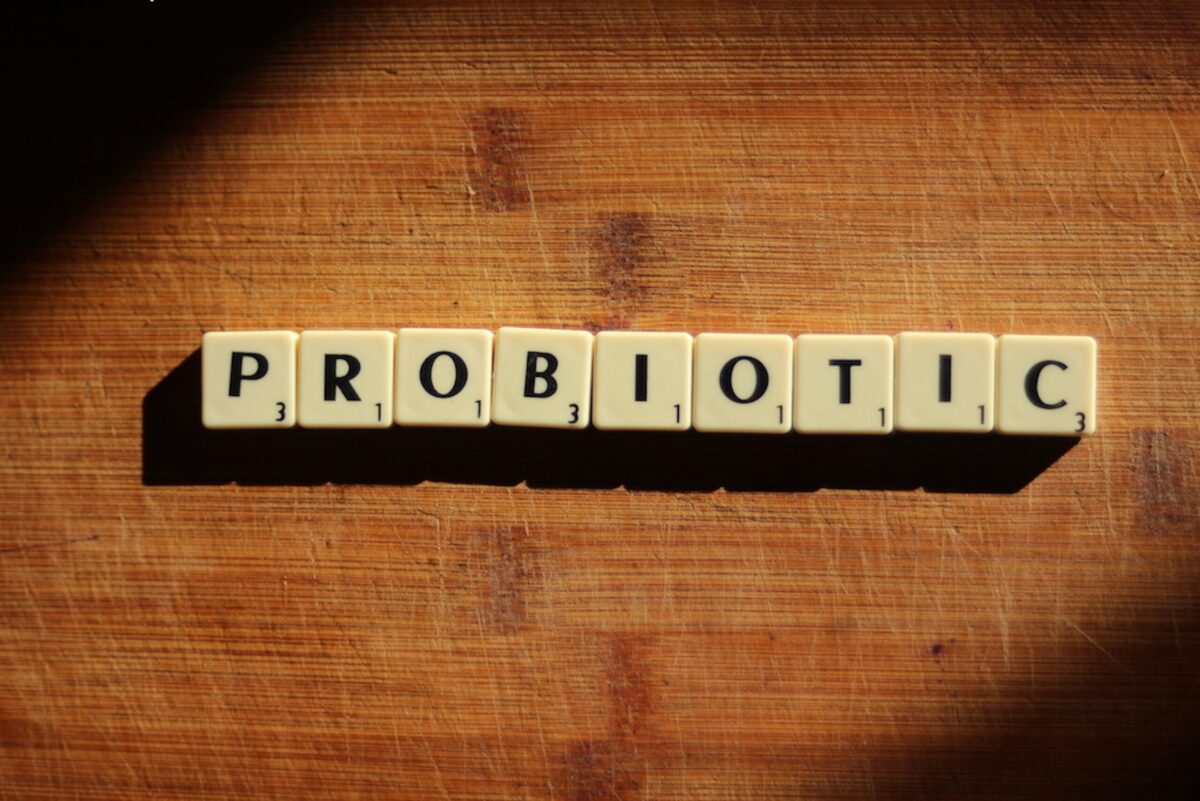Past illnesses, especially those requiring antibiotic treatment, deplete the bacterial flora in the body. A probiotic for dogs is then a good solution. It is also applicable for the prevention of food allergies.
The proper functioning of the digestive system of your pet is just as important as that of humans. However, there are times when the function of the intestines is disrupted as a result of medical treatment, past illnesses and procedures. This involves a loss of balance of the bacterial flora of the digestive system. This can be prevented and effectively treated. What is needed for this is a probiotic for your dog. How does it work and what are the types of such probiotics?

What are probiotics for your dog?
There are many types of bacteria and it is not always necessary to identify them exclusively with pathogenic micro-organisms There are also beneficial bacteria, as exemplified by probiotic species. These are contained in probiotics, which are used both in support of treatment and after treatment in humans and animals.
A probiotic for dogs is a preparation that is usually administered after illnesses and treatments in pets. All this is done to speed up your pet’s convalescence and, at the same time, effectively restore the balance of the bacterial flora of your pet’s digestive system.
Effect of probiotics on the digestive system
Probiotics for the dog have a multifaceted effect. Their presence in the intestines and other parts of the digestive system is desirable and even required for the maintenance of its physiology, i.e. the correct functioning of its organism. Probiotics for dogs have many beneficial properties:
- they have a protective effect on the animal’s stomach, as they reduce the proliferation of the unfavourable Helicobacter Pylori bacteria, leading to many serious illnesses; they protect antibiotic therapy and deworming of the animal;
- accelerate the treatment of diarrhoea in dogs, not only when caused by pathogenic bacteria, but also by viruses or stress;
- support digestive processes and improve absorption of nutrients, vitamins and minerals in the intestines;
- stimulate better immunity – don’t forget that your dog’s health starts in the intestines, so their correct functioning has an impact on your pet’s entire body;
- enable the synthesis of certain vitamins, such as B vitamins, vitamin K and folic acid;
- reduce cholesterol levels, urea levels in chronic renal failure and excessive gas in the intestines;
- they also reduce flatulence;
- increase and regulate intestinal peristalsis.
- reduce the risk of food allergies.
- protect against bone demineralisation.
When is it worth giving a probiotic to a dog?
Most often, probiotics for dogs are worth giving together with antibiotics. Antibiotic therapy treats bacterial diseases, but its side effect is to sterilise your pet’s body. If you do not administer a probiotic for your dog in tandem with antibiotics, you must take into account the risk of your pet developing diarrhoea.
The rationale for using probiotics in dogs in tandem with an antibiotic is sound. The reason for this is that an antibiotic is a drug whose task is to destroy pathogenic bacteria. By the way, it also, as it were, destroys other microorganisms that are beneficial to the dog. Therefore, to protect the bacterial flora in your pet’s intestines and to reduce the risk of unpleasant stomach problems, it is worth giving your dog a probiotic product.
When to use probiotic products for dogs?
The use of antibiotics is just one of the situations when it is worth reaching for a probiotic for your dog. It will also be recommended, after veterinary consultation, in cases such as:
- diarrhoea and constipation;
- digestive problems
- inflammation of the digestive tract;
- intestinal disorders;
- liver disorders
- allergies;
- a desire to improve the appearance of the coat and skin.
If your dog is prone to frequent constipation and excessive gas, then it would be a good idea to give him probiotics. You may wish to consult your vet about this, but this treatment should certainly not harm your four-legged dog in any way. A visit to the vet will allow you to choose the right probiotic for your dog that will work most effectively in his case.
Can you give your dog a probiotic designed for humans?
You need to know that the bacterial flora in the animal’s body is slightly different from that in the human body. Although the structure of the digestive system of humans and dogs or cats is very similar, not to say the same, this does not change the fact that it is inhabited by a species-specific flora of beneficial bacteria.
When human probiotics are administered instead of those for dogs, unforeseen and undesirable side effects may occur. Another consequence is that the absorption of the probiotic in the dog’s body is reduced. In such a situation, the specific will not work as you expect it to.
The best choice will be a dedicated probiotic for your dog. It should have specific strains of probiotic bacteria in its composition that act symbiotically.
Which probiotic preparation for dogs should I choose?
In practice, veterinary probiotic preparations, i.e. probiotics for dogs, most commonly use specifics containing beneficial bacteria from strains:
- Lactobacillus cases;
- Lactobacillus acidophilus;
- Bifidobacterium thermophilus.
A probiotic for dogs may be in tablet, powder, capsule, paste or liquid form. It also comes in the form of ready-made food. After examining your dog, your vet will prescribe a product that is suitable for your dog. It is also worth asking about it if your pet’s condition leaves a lot to be desired or if it is recovering slowly from an illness.
